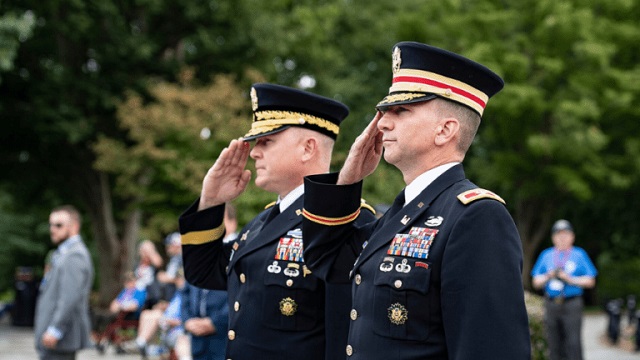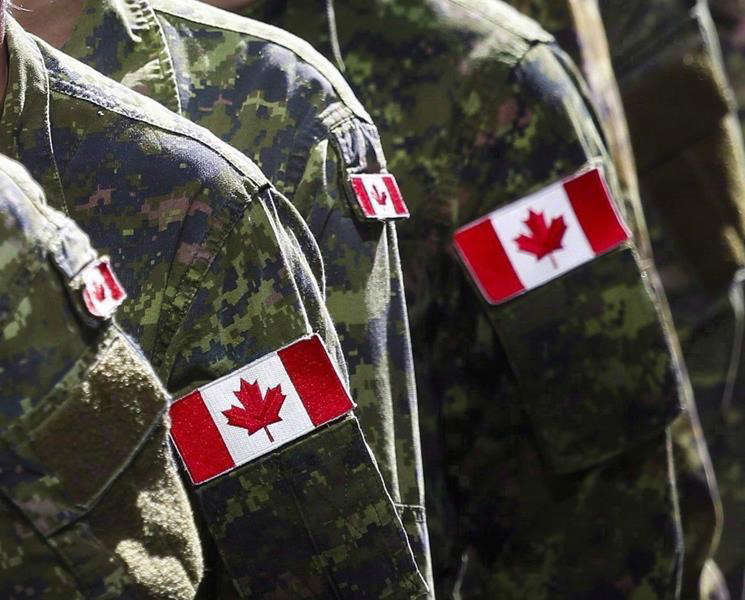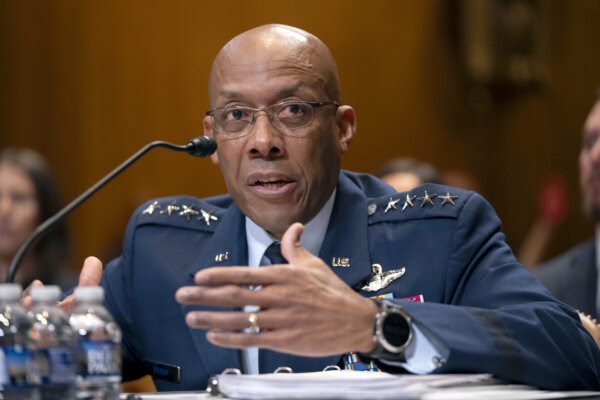armed forces
If you care about Canada’s security, 2023 was a year of substantial disappointment

From the MacDonald Laurier Institute
And it’s unlikely to get any better in 2024
As the calendar turns over to 2024, I’ve been reflecting on the year that was in Canadian security and defence. It started off with great promise. There was the potential for a new defence policy update that would address many of the government’s shortcomings with respect to defence policy and the military capabilities of the armed forces, and there was the potential for the procurement of the P-8 alongside a number of other capabilities.
Furthermore, there was hope for progress in dealing with substantiative issues around culture change and recruitment/retention. After General Eyre’s directive on reconstitution in October 2022, there was good evidence to suggest that the political leadership understood the poor material shape the Canadian Armed Forces were in and would become more discriminating as to what missions it was sent on. Relatedly the government as a whole seemed to better understand the national security environment it found itself in, especially after the publication of the Indo-Pacific Strategy in November of 2022.
Yet the close of 2023 highlights just how much this was a year of substantial disappointment for those who care about Canada’s military, defence capabilities, and its place in the world.
Rather than the beginnings of a renewal, the CAF is in a worse state and facing an even deeper hole it needs to dig out of. The delay of the defence policy update, reportedly due to its cost, as well as the shuffling out of Anita Anand, a popular minister within the department, tore out the tender shoots of hope many military members had nurtured for the military’s revival. The announced budget cutbacks of approximately $1 billion dollars over the next three years further put this to bed.
While there were some funding announcements, such as the P-8 and the Remotely Piloted Air System program, they are being layered onto a military that has haemorrhaged much of its key personnel. Many individuals, who are already overtasked, rightly wonder who will be there to integrate, operate, or sustain these new capabilities.
None of this even acknowledges the increased threat environment or the massive technological change that is affecting a CAF that desperately requires modernization. While National Defence has outlined several efforts to address this challenge, such as the pan-domain strategy, its requirement to simply survive on an austere budget means there are no resources or intellectual capacity left to implement them.
Looking back at the past year, I have been searching for historical precedents to compare it to. One has come to mind a few times: 2003.
Similar to the present, the country was faced with a number of serious security challenges: 9/11, Afghanistan, and the debate over the impending Iraq war. The 2003 CAF faced serious material and manpower challenges—what General Rick Hillier would later describe as the “decade of darkness” of the 1990s. In 2003 the military faced multiple crises simultaneously: a rust-out crisis of aging military equipment, a personnel crisis, and multiple open-ended missions. As one influential study, titled “Canada Without Armed Forces” published in 2003 suggested:
The next government will be caught up in a cascading policy entanglement initiated by the rapid collapse of Canadian Forces core assets and core capabilities. This problem will inevitably disarm foreign policy as Canada repeatedly backs away from international commitments because it lacks adequate military forces. In these circumstances, new policy initiatives aimed at ‘being useful to the United States in our own interests’ may well be derailed.
Sound familiar? While some of the direst of predictions did not immediately emerge, they were only delayed. The military received substantial investments, but a large portion of it was tied to funding the operations in Afghanistan or helping build a military that would continue similar operations. Modernization was delayed on capabilities that would help defend Canada and its allies from great power conflict, and in some cases entire capability sets were retired with no replacement forthcoming.
Looking back at the past year, one way to look at my columns is that they are chronicling the consequences of the inadequate modernization of the Canadian Armed Forces since 2003. It is a likely outcome that by 2028, the country will likely have a navy and air force that are effectively unable to provide a basic level of defence in key areas, and an army that will be unable to assist our allies with previously announced commitments.
But this does not explain why we’ve arrived at this moment. Over the years, many observers of Canadian foreign and defence policy have noted that the fundamental “problem” of the country’s national defence is that there are no “pressing” threats to its security. I’ve personally had difficulties with this perspective, as it lazily excuses present-day inaction. It ignores (or, perhaps more accurately, confirms) the perspective that it is not actually to do with the threats themselves, but Canadians’ perception of them. One book, also published in 2003, diagnosed this problem well: Andrew Cohen’s While Canada Slept. It is still worth reading today.
From 1945 to 1968, successive Canadian governments from Louis St. Laurent to Lester B. Pearson viewed international security as a critical focus. Many had fought or been a direct participant in one or both World Wars and saw the ruinous cost of inaction and unpreparedness. They had built close relationships with senior officials of all of Canada’s major allies, which allowed them to tackle problems in lock-step with each other. Canada was present at the creation of the key institutes that have provided for our economic prosperity and security. Cohen’s book lamented the decline of Canada’s principal foreign policy instruments due to neglect that occurred even as Canadians agreed that being a good international partner was in the country’s national interest.
That really hasn’t improved over the subsequent twenty years. Rather, the reality is grimmer. Like in 2003, the international system has changed radically, this time with Russia and China actively undermining the rules-based order. In the 2000s, both Paul Martin (and later Stephen Harper) understood the poor material state of the CAF and made efforts to address it. Unlike then, however, the government of today has been extremely slow to acknowledge this reality, and in some cases ignores it for their own political interests.
This has given me the most pause over the past year. Rather than acknowledge or address the real possibility of capability collapse or the broader international challenges, the political leadership has chosen to obfuscate these issues and continue policies that have already contributed to the state it currently is in. There is a preference for big, showy announcements while ignoring the much more desperately needed substantial action to fix the armed forces and foreign policy writ large.
Just this week the minister of national defence announced the deployment nine helicopters to Latvia followed by sending a handful of personnel to support the multinational effort to provide security in the Red Sea. These are token contributions that are unsustainable in aggregate for the military, yet they serve the political purpose of showing Canada doing “something.” Domestic priorities, no matter how small, will trump international ones for this government.
This was evident last July at the NATO meeting in Latvia, which was focused on the threat posed by Russia and the war in Ukraine. Rather than focus on the topic at hand, Prime Minister Trudeau took to lecturing the assembled leaders on the threat posed by climate change, which was not well received by the gathering. Even in non-defence areas, such as with foreign interference, similar preferences are visible. The continual delay in establishing an inquiry while trying to control its scope is an example of putting parochial interests over that of the country writ large.
Considering the hope that the year started with and how it ended, it’s unlikely that much will change in 2024. Even a cursory look at the political interests of the Liberal and NDP parties (joined by their supply and confidence agreement) suggests that it is unlikely that the government will accelerate their spending on defence—rather they are more likely introduce more delays. Yet the military and other instruments of the country’s foreign and security policy will not be able to wait. Their failings need to be addressed now, or we will collectively suffer its consequences.
Richard Shimooka is a Hub contributing writer and a senior fellow at the Macdonald-Laurier Institute who writes on defence policy.
armed forces
Canada’s Military is Collapsing. Without Urgent Action, We Won’t Be Able To Defend Ourselves

From the Frontier Centre for Public Policy
By David Leis
Decades of underfunding and political neglect have left our military weak and unprepared
What Lt.-Gen (retired) Michel Maisonneuve (ret.) told me about Canada’s military was nothing short of alarming. He didn’t mince words—our armed forces are in dire straits. If we don’t act now, Canada will not only be unable to defend itself, but it will cease to be taken seriously by our allies, many of whom are already losing patience with our military decline.
Maisonneuve has seen firsthand what a functioning military looks like. He has served at the highest levels, working alongside our allies in NATO, and he knows exactly what Canada is failing to do. “We are no longer at the table when major defence decisions are made,” he told me. “The Americans don’t ask us what we think anymore because they know we can’t contribute.” That is a stunning indictment of where we now stand—a country that was once respected for its ability to punch above its weight militarily has been reduced to an afterthought.
The problem, as Maisonneuve laid out, is both simple and staggering: Canada doesn’t take its defence seriously anymore. The government has allowed our forces to wither. The Air Force is still buying CF-18s from the 1980s because the long-delayed F-35 procurement is years behind schedule. The Navy, once a competent maritime force, is barely functional, with no operational submarines and a fleet that is nowhere near what is needed to patrol our vast coastlines.
Meanwhile, the Army is struggling to recruit and retain soldiers, leaving its numbers dangerously low. “We have an Army in name only,” Maisonneuve said. “If we were called upon tomorrow to deploy a fully operational combat force, we couldn’t do it.”
Even more shocking is the state of readiness of our troops. A recent report found that 75 per cent of Canadian military personnel are overweight. Maisonneuve didn’t sugarcoat it:
“It’s unacceptable. We are supposed to be training warriors, not watching fitness standards collapse.” When the people entrusted with defending our country are struggling with basic physical fitness, it speaks to something much deeper—an institutional rot that has infected the entire system. Our allies have noticed. Canada was locked out of AUKUS, the military alliance between the U.S., the U.K. and Australia. “It wasn’t an oversight,” Maisonneuve explained. “It was a deliberate snub. The Americans don’t see us as a serious defence partner anymore.” That snub should have been a wake-up call. Instead, our government shrugged it off.
Meanwhile, Washington is openly questioning Canada’s value in NATO. The Americans see the numbers—Canada refuses to meet even the minimum defence spending requirement of two per cent of GDP. Instead of fulfilling our obligations, we offer up empty promises and expect others to pick up the slack.
Maisonneuve is blunt about what needs to be done. “First, we need to fully fund the military—and that means not just hitting the NATO target but exceeding it. Our allies spend real money on their defence because they understand that security is not optional.” He suggests Canada should aim for at least 2.5 per cent of GDP, not just as a show of commitment but as a necessity to rebuild our capabilities. Beyond money, Maisonneuve argues that military culture must be restored.
“We’ve allowed ideology to creep into the ranks. The military’s primary function is to defend the nation, not to serve as a social experiment,” he said. “We need to get back to training warriors, not worrying about whether we’re ticking the right diversity boxes.” He believes a return to a warrior ethos is essential— without it, the military will remain directionless.
Procurement is another disaster that Maisonneuve insists must be fixed immediately. “We’ve spent years dithering on replacing equipment, and every delay puts us further behind,” he said. The F-35 deal should have been signed years ago, but political hesitation means we won’t see a full fleet for years. The Navy urgently needs new submarines and icebreakers, especially to secure the Arctic, where other global powers, particularly Russia, are ramping up their presence.
The biggest issue, though, is manpower. “We need to rebuild the forces, period,” Maisonneuve told me. “That means recruiting, training, and retaining soldiers, and we are failing at all three.” He even suggested that Canada should consider implementing a national service requirement, a move that would not only increase troop numbers but also instill a sense of duty and responsibility in younger generations. “We used to be a country that took security seriously,” he said. “What happened?”
That’s the question, isn’t it? What happened to Canada? How did we go from being a country that contributed meaningfully to global security to one that can’t even defend itself? The reality is that successive governments have let this happen—first by neglecting funding, then by letting bureaucracy suffocate procurement, and finally by allowing the core purpose of the military to be diluted.
Maisonneuve is clear: Canada must act now, or it will cease to be taken seriously.
David Leis is President and CEO of the Frontier Centre for Public Policy and host of the Leaders on the Frontier podcast
armed forces
Trump fires chairman of Joint Chiefs of Staff, appoints new military leader


From the Daily Caller News Foundation
By Mariane Angela
President Donald Trump announced Friday the dismissal of General Charles Brown, the current Chairman of the Joint Chiefs of Staff.
In a post on Truth Social, Trump expressed his gratitude toward Brown for his extensive contributions and leadership, wishing him and his family a prosperous future. Brown’s departure marks a pivotal moment in U.S. military leadership following over 40 years of service.
“I want to thank General Charles “CQ” Brown for his over 40 years of service to our country, including as our current Chairman of the Joint Chiefs of Staff. He is a fine gentleman and an outstanding leader, and I wish a great future for him and his family,” Trump wrote.
Simultaneously, Trump introduced his nominee for Brown’s successor.
“Today, I am honored to announce that I am nominating Air Force Lieutenant General Dan “Razin” Caine to be the next Chairman of the Joint Chiefs of Staff. General Caine is an accomplished pilot, national security expert, successful entrepreneur, and a “warfighter” with significant interagency and special operations experience,” Trump said.
Trump said Caine’s appointment comes after he was overlooked for advancement during former President Joe Biden’s presidency.
“General Caine was passed over for promotion by Sleepy Joe Biden. But not anymore! Alongside Secretary Pete Hegseth, General Caine and our military will restore peace through strength, put America First, and rebuild our military,” Trump said. President Trump also announced plans to appoint five additional senior military officials, tasks he has delegated to Secretary Hegseth.
It was reported Thursday that Hegseth plans to dismiss Brown as part of President Trump’s commitment to eliminate “wokeness” from the military. Brown reportedly appears on a list of proposed removals submitted to Congress.
Brown had previously expressed his wish to retain his position even after Trump took office, and according to sources speaking to NBC News in Dec. 2024, Trump seemingly moderated his views on the general. Biden nominated Brown as chairman in 2023, and despite a heated confirmation hearing where senators scrutinized his alleged implementation of racial quotas in Air Force hiring practices, he was confirmed.
Meanwhile, Brown’s replacement, Caine, took office as the associate director for Military Affairs at the CIA on Nov. 3, 2021, after serving as the director of Special Programs at the Pentagon. Lt. Gen. Dan Caine, an F-16 pilot with extensive experience including over 150 combat hours, was commissioned in 1990 and has held numerous key roles, from the White House staff to special operations, and balances his military career with entrepreneurial ventures.
-

 Business2 days ago
Business2 days agoChinese firm unveils palm-based biometric ID payments, sparking fresh privacy concerns
-

 2025 Federal Election2 days ago
2025 Federal Election2 days agoConservatives promise to ban firing of Canadian federal workers based on COVID jab status
-

 Business1 day ago
Business1 day agoIs Government Inflation Reporting Accurate?
-

 2025 Federal Election1 day ago
2025 Federal Election1 day agoCarney’s Hidden Climate Finance Agenda
-

 International2 days ago
International2 days agoPope Francis Got Canadian History Wrong
-

 Environment2 days ago
Environment2 days agoExperiments to dim sunlight will soon be approved by UK government: report
-

 Censorship Industrial Complex2 days ago
Censorship Industrial Complex2 days agoIs free speech over in the UK? Government censorship reaches frightening new levels
-

 2025 Federal Election1 day ago
2025 Federal Election1 day agoWhen it comes to pipelines, Carney’s words flow both ways




